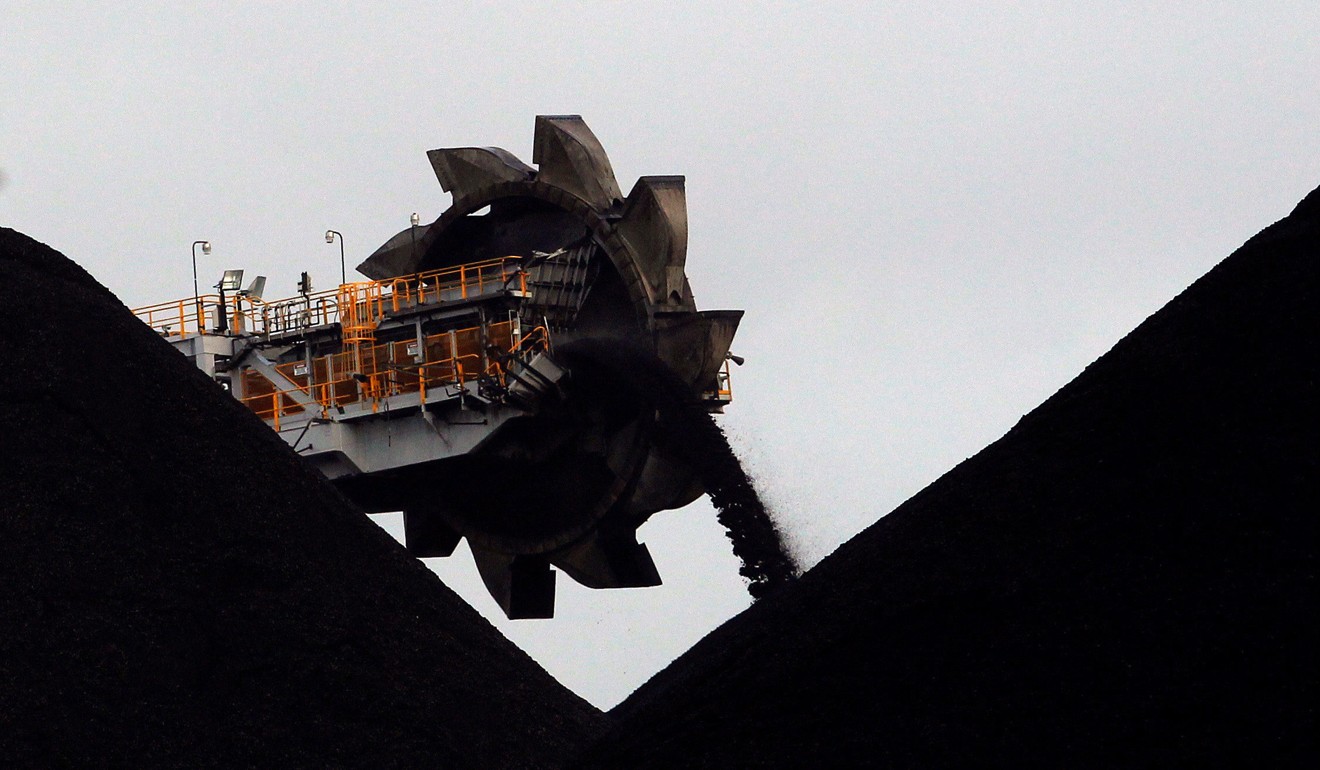
Scott Morrison plays down Chinese restrictions on Australian coal imports
- The Department of Foreign Affairs and Trade is urgently seeking clarification from Chinese officials
- China is Australia’s largest trading partner, and coal is the latter’s biggest export commodity
Australian Prime Minister Scott Morrison is not “jumping to conclusions” over a Chinese port’s reported ban on Australian coal imports amid fears it’s linked to a diplomatic rift.
Morrison, in New Zealand on Friday for bilateral talks with his counterpart, Jacinda Ardern, said local ports made their own decisions about such matters.
“I think people should be careful about leaping to conclusions about this,” he told reporters in Auckland.
“We will, of course, continue to engage with those local ports and those authorities and work through the same regulatory issues that we have worked through in the past.”
Banned Chinese donor Huang Xiangmo says Australia is ‘giant baby’
On Friday morning, the Australian dollar was trading more than one percentage point down from Thursday after Reuters reported that one of China’s biggest ports had banned imports of Australian coal and would cap overall coal imports for 2019.
Citing an unnamed official, the Reuters report said five harbours overseen by Dalian customs – Dalian, Bayuquan, Panjin, Dandong and Beiliang – would no longer allow Australian coal to be cleared.
China is Australia’s largest trading partner, and coal is the latter’s biggest export commodity.
No reason has been given for the ban, but a spokesman for China’s foreign ministry said on Thursday that its customs administration was testing coal imports for “environmental protection”.
China condemns Australian senator’s ‘Chinaman’ slur
On Thursday, the China Daily published an editorial condemning LNP senator Barry O’Sullivan, who made an offensive remark about Chinese people breaching biosecurity rules during a parliamentary committee meeting this week. The paper’s editorial said it “reflects an ugly side of Australia’s political culture” and accused the government of fanning xenophobia.
“The two-way trading relationship between Australia and China is important and strong, and it is in Australia’s long-term national interests,” he said.
“If you look at the volume and the value of our coal exports to China and in the last quarter of 2018, it was higher in the same period last year and the coal exports underpin more than 50,000 jobs and $60 billion of exports, so they will continue to be strong and robust.”
The two-way trading relationship between Australia and China is strong
The governor of the Reserve Bank of Australia, Philip Lowe, sought to calm markets, telling a parliamentary hearing in Sydney that he did not expect the ban to have a “dramatic effect” on the economy.
While conceding it would be “concerning” if the decision were a sign of a “deterioration in the underlying political relationship” Lowe said it was also possible the decision was made on environment grounds or as a way of boosting domestic coal prices in China.
“I think we still have to wait and see what the underlying issues are,” he said. “I wouldn’t jump yet to the conclusion that this is something linked to Australia.”

Lowe’s comments marry with those made by Chinese foreign ministry spokesman, Geng Shuang, who said the ban was made on environmental grounds and described it as “completely normal”.
“China’s customs assesses the safety and quality of imported coal, analyses possible risks, and conducts corresponding examination and inspection compliant with laws and regulations,” he said.
“By doing so, it can better safeguard the legitimate rights and interests of Chinese importers and protect the environment.”
On Thursday night, Department of Foreign Affairs and Trade official Graham Fletcher told a Senate estimates hearing his department was urgently seeking clarification from Chinese officials.

